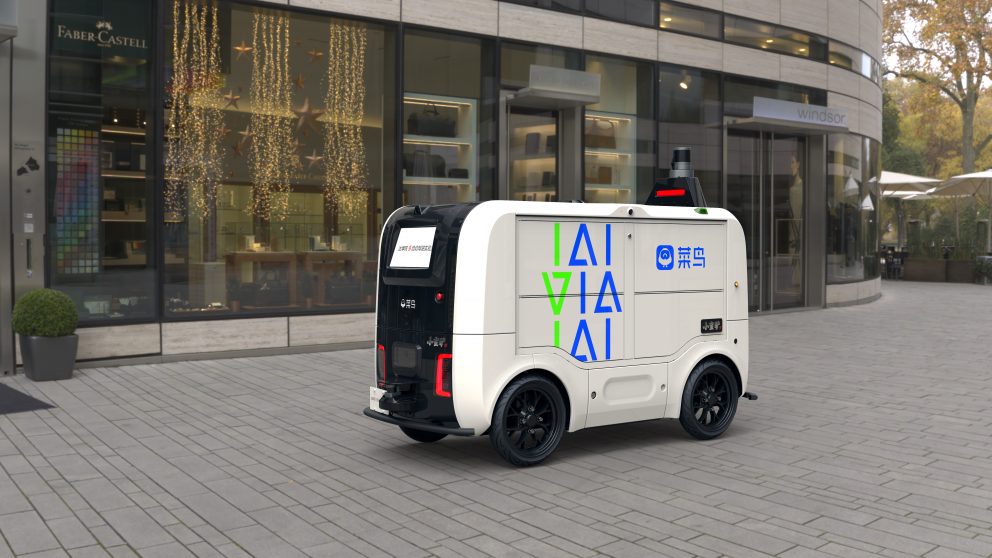
Alibaba’s autonomous delivery robots Xiaomanlv have delivered more than 10 million parcels in China. Photo credit: Alibaba Group
Autonomous robots developed by Alibaba Group delivered more than 10 million parcels as of March 31, according to the latest company earnings report.
Over 500 electric driverless robots, dubbed Xiaomanlv or “little donkeys” in Mandarin, have been making deliveries since September 2020 at university campuses across China.
Last-mile delivery is the Achilles heel of logistics companies; house-to-house stops are slow, labor intensive and account for up to 28% of total shipment cost, according to research group Euromonitor International.
Enter Xiaomanlv. The devices, powered by technology from the Autonomous Driving Lab at Alibaba’s technology and science institute DAMO Academy, can carry about 50 packages at a time and travel 100 kilometers on a single charge.
The robots can navigate their way 99.9% of the time without human intervention, aided by an algorithm that finds them the most efficient delivery routes.
“The biggest advantage that driverless robots have is their reliability, and their cost advantage will come into full play when they achieve economy of scale,” said Hu Changqing, who led the operation team for Xiaomanlv at Cainiao, Alibaba’s logistics network.
The company has overseen the robots’ deployment at more than 200 Chinese universities, where they deliver parcels sent via the Cainiao Post mailing system.
Automation
Customers’ increasing demand for fast and cheap delivery is driving automation in the logistics industry.
More than 60% of shoppers would switch e-commerce platforms to avoid paying extra delivery fees, consulting company Atos reported.
But deploying robots requires an upfront investment, and operators must consider manufacturing and testing costs. For instance, before Xiaomanlv starts service in a new area, Cainiao needs to map out the area to ensure that the robot can navigate the route.
To achieve economies of scale, Alibaba piloted the robots at university campuses with busy Cainiao Post stations that receive more than 4,000 packages every day.
Safe Shipping
During the pandemic, autonomous deliveries are one of the safest ways to maintain social distancing.
When the pandemic led to logistics disruption during recent lockdowns in Shanghai, more than 20 Xiaomanlv were used to deliver over 600,000 goods for locked-down residents in April and May, the latest data shows.
Hu hopes to deploy 1,000 Xiaomanlv at around 500 school campuses by the end of the year. Soon, people may even use the robots to deliver goods ranging from food to medicine, he said.




